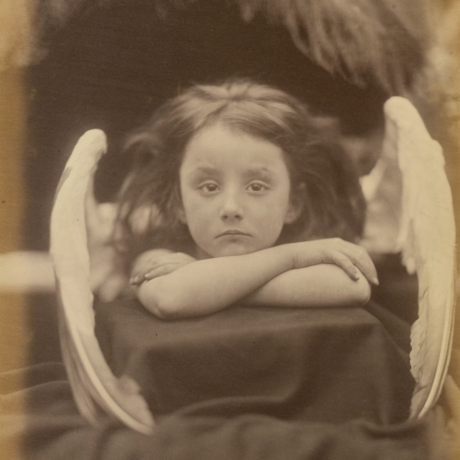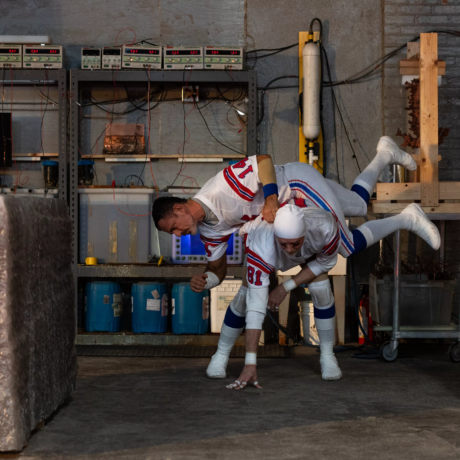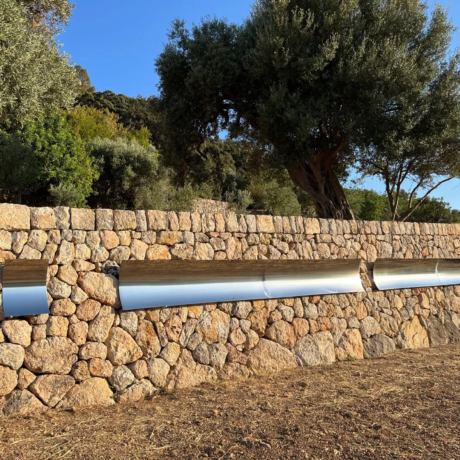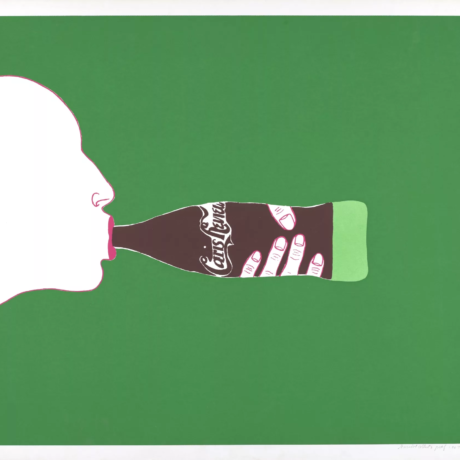If you watch the Guy Ritchie spy film Operation Fortune: Ruse de Guerre, there’s a scene on a billionaire’s yacht where Aubrey Plaza’s character has a discussion around the onscreen contemporary artwork by the painter Rhed. For those who are unaware, Rhed is the not so secret pseudonym of painter Rocco Ritchie – the son of Madonna and Guy Ritchie.
Pushing his own son’s artwork in the film is the kind of wink to the camera chutzpah you may expect from a Guy Ritchie movie. Sadly for most painters they don’t have a major film director for a father, or any other connections within Hollywood, that would allow for their works to be plugged in a big budget movie.
Rocco Ritchie is to many a ‘nepo baby’, a term that became popular in 2020 to refer to those whose parents have succeeded in similar careers, the implication being that their children were able to use their parents’ connections to become a success.
‘Nepo baby’ may be a relatively new term but for most people it’s a perfectly natural path to follow their parents into a similar field as they’ve been exposed to it all their lives. It’s been documented that children of doctors are 27 times more likely to become doctors themselves, and most small independent businesses from galleries to your local coffee shop are often family run businesses.
There are some artists and art professionals where their family connections are likely to have paved the way for their success but what about those who are simply progressing into the ‘family business’. They may have artistic parents or grandparents, but not necessarily those with the type of clout that makes a marked difference in their lives – i.e. major galleries won’t be snapping them up simply because of who their parents are or they can’t rely purely on their parents to fund their careers.
Elephant reached out to several creatives to discuss how their family connections have influenced their lives and career choices. We also spoke about how those who have some degree of privilege can open the doors for others, how transparent we should be in discussing family ties. We also spoke to those with no family background in art to chart how their journeys were different.
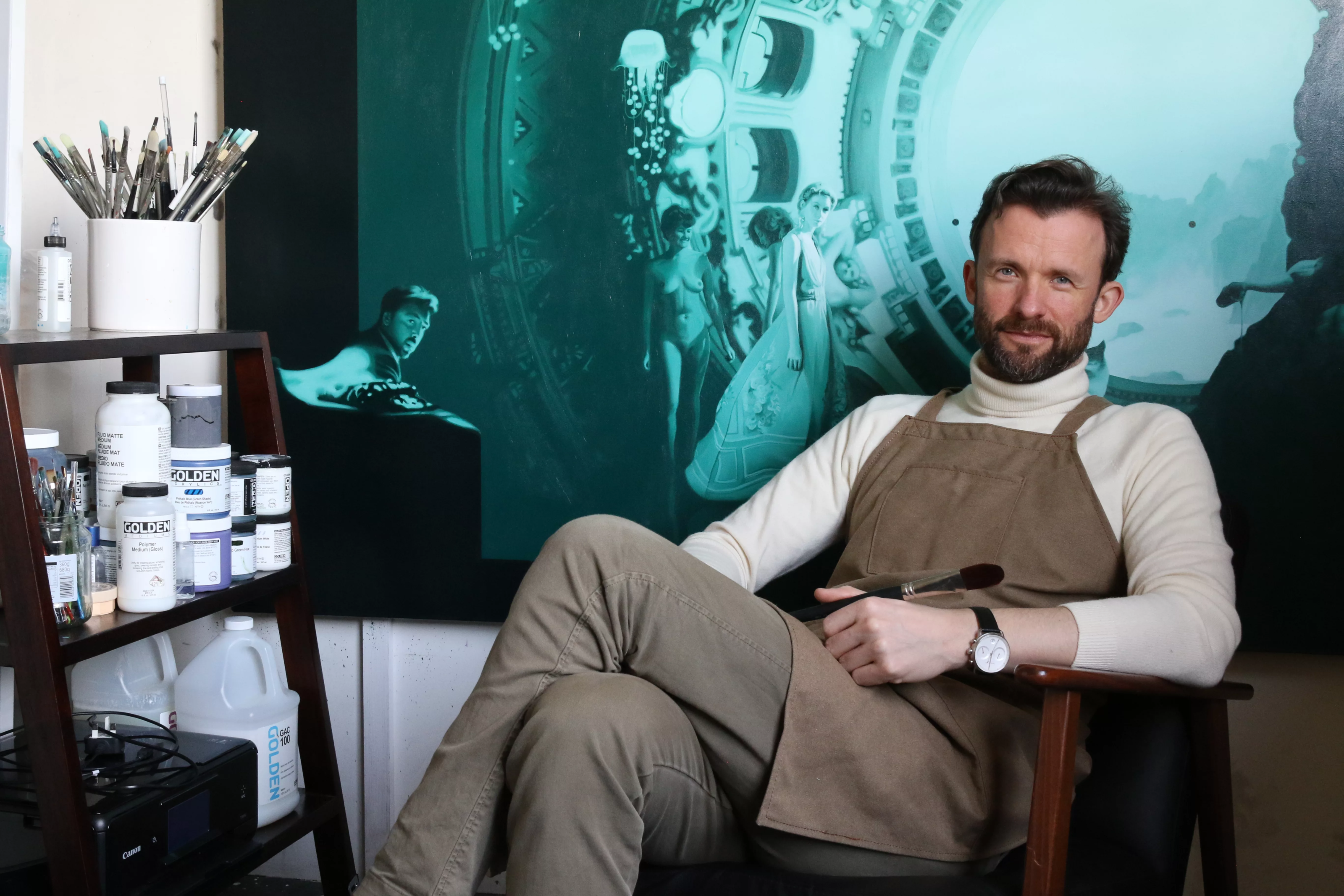
Kristian Evju, a Norwegian born painter based in London whose father is a painter, spoke to us about the pros and cons of being from an artistic family – “I think there are definitely both advantages and disadvantages to having a parent in the art world. For me the biggest advantage has probably been the complete acceptance in terms of choosing to pursue a career as an artist. The choice isn’t without risk, and I’m sure my father was worried that it wouldn’t work out for me, but he never said. He was the first person in his family to become an artist, and I know that was difficult for him.
The disadvantages are probably more to do with stability and support. Because an artist’s life is unpredictable, there will be times with high stress levels, impossible working hours, or very little money. My childhood was in many ways very different from other children I grew up with, but I think the fact that I chose this life for myself with that knowledge is a testament to how my parents handled it all.
In terms of discomfort – perhaps I would have felt more hesitant if my dad’s position or name in the art world had given me unfair advantages, but it really hasn’t. I would probably not be an artist if it wasn’t for him, which I am very thankful for – he showed me how it’s so much more than just a job, and how much work it really takes to sustain a living from it.”
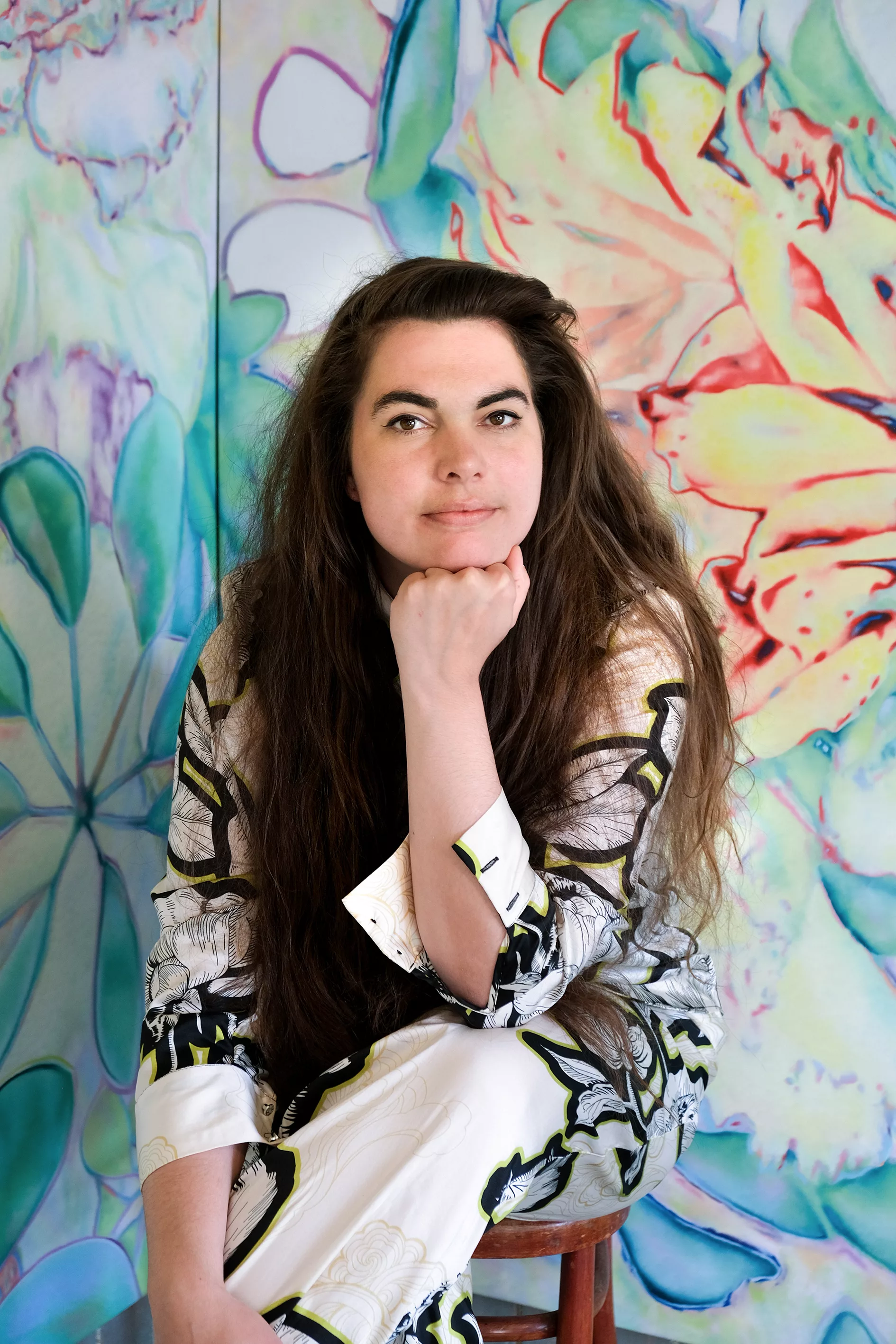
Similarly London and Oslo based contemporary artist Martine Poppe, whose mother is a photographer, uncle is a film director and she has many other creatives in her family, also talks about this two-sided nature of family connections – “The fact that my family knows a lot of artists is nice, but it’s not particularly useful career wise. The reality of having a mother who’s a photographer and an uncle who makes films is far more personal; my mother’s side of the family are familiar with the process of making art and they have a fairly good understanding of the workings of the art world. That’s made it easier for me to share that side of my life and to be met with an informed understanding of whatever is on my mind.
When I was a recent graduate, reaching out to other artists through my mother in order to get practical advice, like how to go about finding a studio in Oslo, was helpful. And I’m sure there’s been people who have treated me more kindly because they’re friends with a family member of mine. On the flip side, the creative communities in Norway are very competitive. There have been times people have had strong opinions about my family members, and consequently taken out a small portion of their frustration on me.
Occasionally, there will be those who assume that I’ve learnt everything I know from my family and I do find that uncomfortable. My path has very much so been my own and it’s been a lot of work, so I cringe a little when ownership of those experiences is taken from me”.
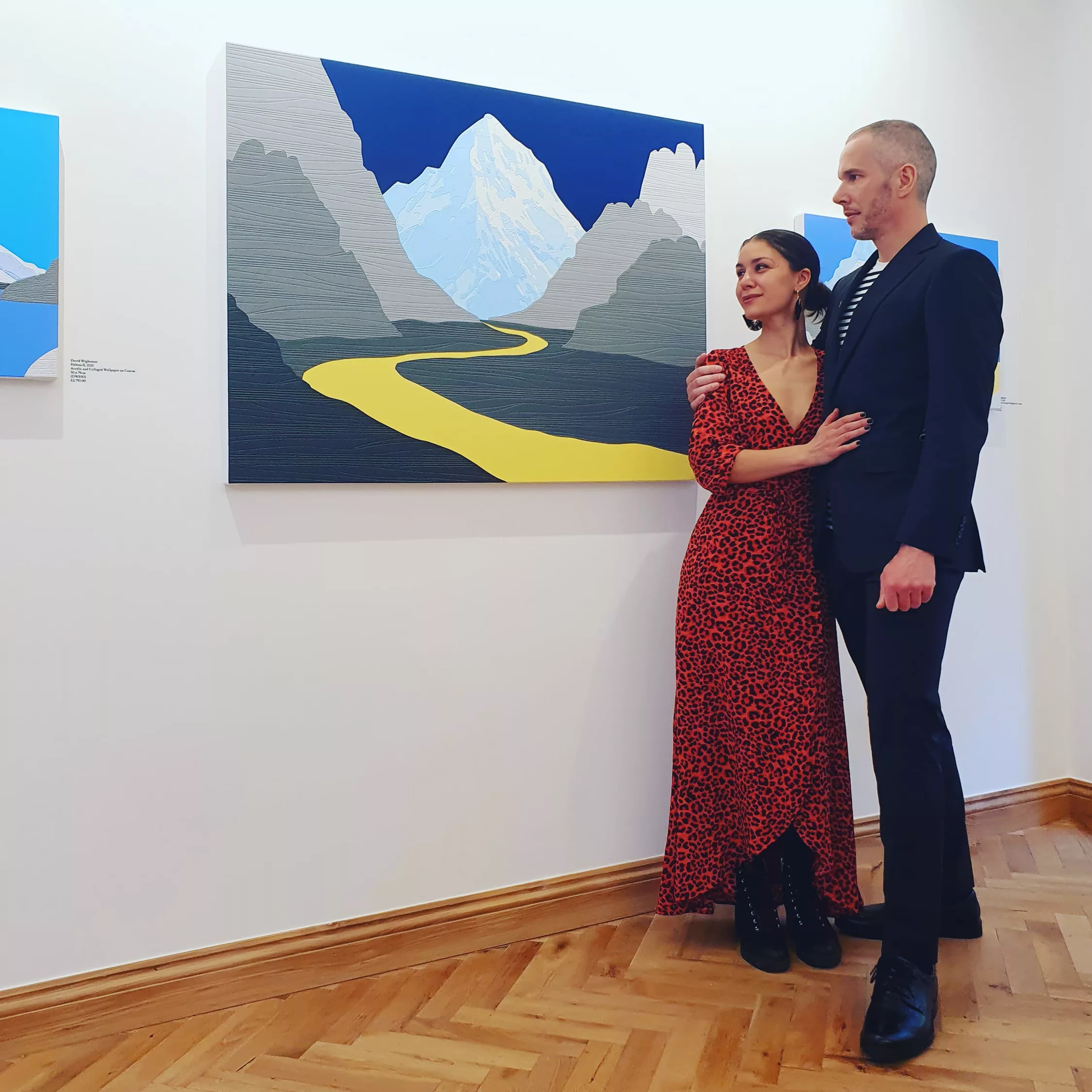
Both Poppe and Evju talk about the family’s acceptance of their career choice and knowing that being an artist was an option that was open to them. For those without a pre-existing knowledge of the art world, such as painter David Wightman, it came as a surprise that art could be a career – “My earliest memories are of drawing and painting. However, growing up I never thought of art as a career. I simply didn’t know that contemporary artists existed. I’d never visited an art gallery, there was no art at home, and no discussion of art as anything but a hobby. It wasn’t until I visited London as a teenager that I saw art by living artists for the first time ever. I was shocked!”
Aphra Shemza is the grand-daughter of renowned British / Pakistani artist Anwar Jalal Shemza whose work is held in collections around the world including those of Tate in the UK and the Metropolitan Museum of Art in New York, USA – she is both a practising artist and director of her grandfather’s estate. “Not only has [my grandfather’s] practice been a great inspiration for my own artistic work, through managing the Estate I have been introduced to curators in some of the most renowned institutions in the world … It is a huge privilege to be the custodian of my grandfather’s artworks and archive and it is important that this is recognised.”
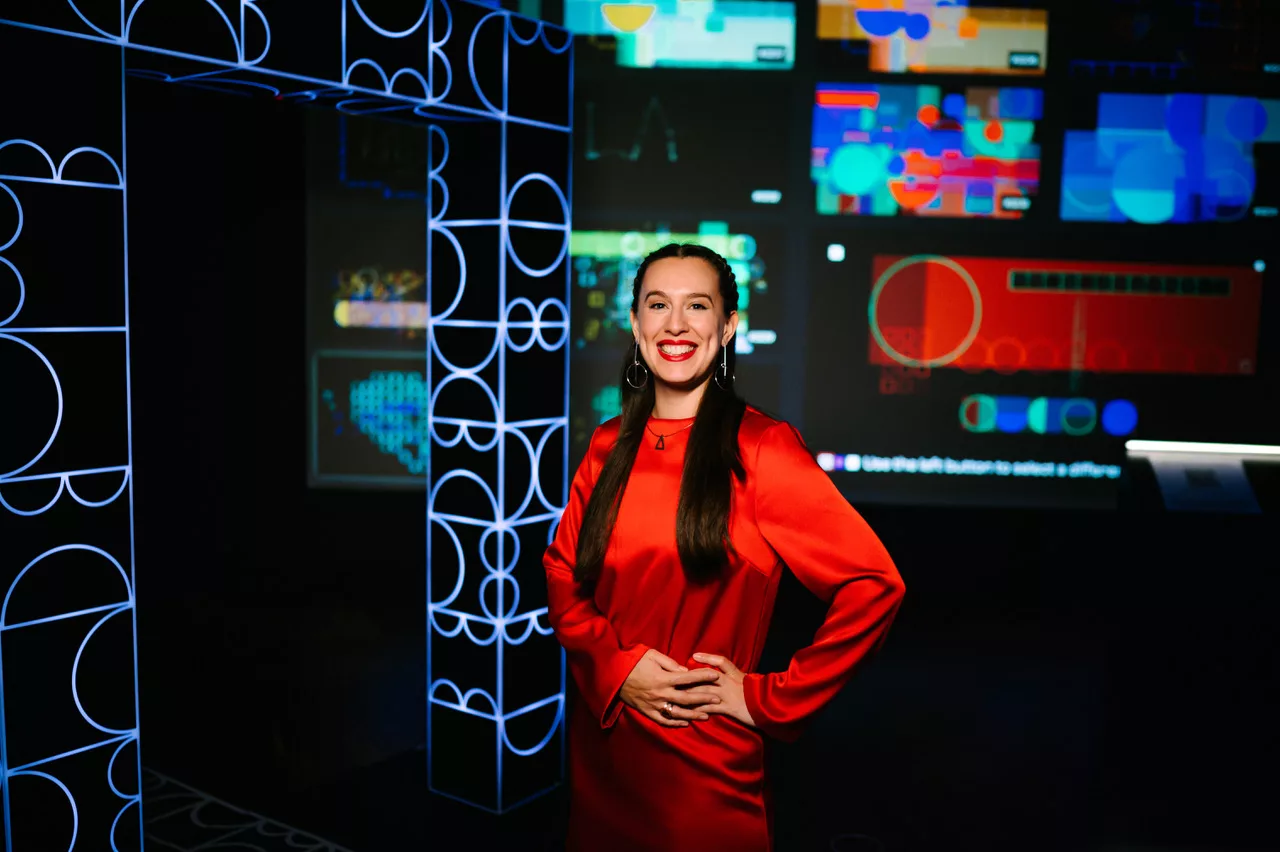
Iraqi London-based writer and photographer Yamam Nabeel talks more about the negative side of being compared with his father who is a poet and writer: “In the Arab world, especially in the cultural and art world it has mainly disadvantages, as comparison is inevitable and accusations of nepotism would be forthcoming. So, when I started writing I made the decision to use my middle name – in Arabic it’s the father’s first name – as my surname. Those who knew him personally knew who I was, but those in the wider circle did not.
For me it was a distinct disadvantage not only from the point of view of the inevitable comparison, but also because of his ideological and political views, judgments against him would be made against me. However, we work and write in different languages and that has given us almost a parallel existence”.
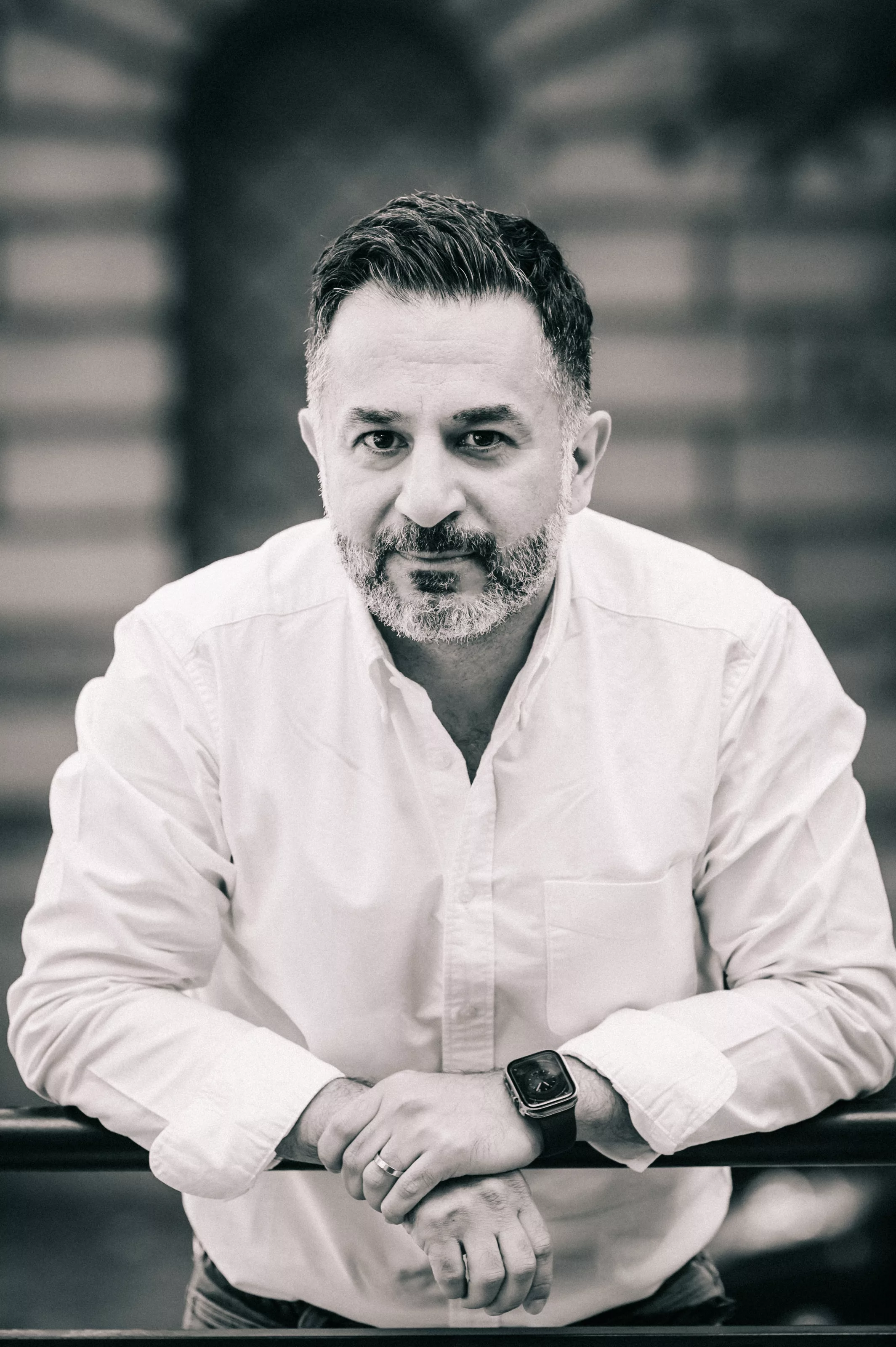
This discussion also applies to arts professionals and we spoke to Nancy Dewe Mathews, a radio host and communications manager whose mother is the journalist, author and broadcaster Louisa Buck and Dewe Mathews has several creative relatives on her father’s side – including a painter and a photographer – “I think the advantage or benefit that these connections have given me is some understanding of what is a very complicated and intimidating world. It is difficult to move through the art sector. It is a place where the professional and the social merge, status is unclear but pervasive, and knowledge can often be a powerful thing to have.
I still struggle to navigate it and find it challenging in this respect, but I think growing up within it, and also around someone who has existed in it for a long time, has given me more understanding and confidence in certain areas. Another positive to having these connections, is that I have been fortunate enough to experience and access some amazing projects and work in this industry – it has given me an appreciation and love of the art sector and the people within it from a younger age.
In some ways these connections have also definitely posed challenges in terms of assumptions from others and also boundaries for myself and those around me. I have tried to have a degree of separation from those I have connections with in the art world, which I think is crucial. But I also greatly enjoy being in this industry with so many people I care about”.
Maya Bailey who works in arts PR and is the daughter of artist Dame Sonia Boyce RA and curator David A. Bailey speaks openly about the advantages of having such well esteemed parents – “It’s given me an advantage people can only dream of … It’s allowed me into certain rooms not usually available for black women with an invisible disability. It also gives me a particular status with what I say, like there is some validity to it”.
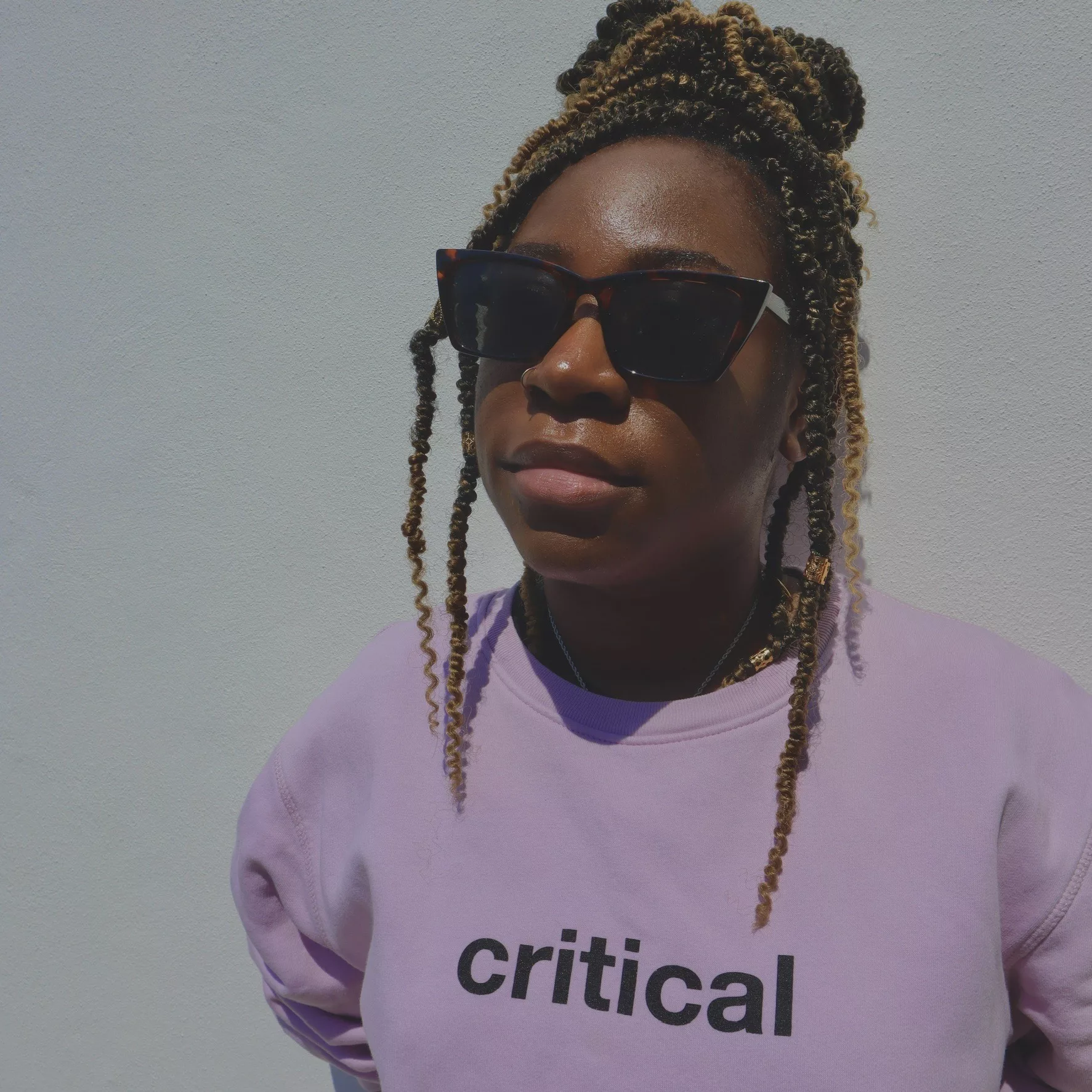
Not knowing that a career in the arts exists is also applicable to arts professionals as curator, art historian and podcast host Jo McLaughlin found in her career journey – “I was at a University course fair and came across someone sitting under a banner which read ‘Art History’. Having no idea what it was, I asked. Fascinated and excited by the explanation given, my next question was – ‘What kind of jobs can you do with an Art History degree?’ The proceeding list of jobs I received was an epiphany – I immediately knew this is what I wanted to do.
I often think of that woman and how she completely changed my life. I didn’t know Art History was a thing, nor that studying it could lead to such a creative, challenging and fulfilling career. What happened to me was a ‘sliding doors’ moment really – had I gone to any other desk, or that person not turned up on the day – how different my life would be now.”
When asked about how we should have open and constructive discussion on the topic of creative parents every response highlighted the importance of openness and transparency.
“I guess there are many types of family connections in the art world, and I think it is important to be open about privileges, not just when they are lacking. Having worked as an artist most of my adult life, I can definitely say that I have peers that wouldn’t be able to sustain their practices without family support on a material level, and maybe that can sound unfair, but at the same time I’ve seen how such support can stifle a career with demand, pressure and responsibilities”, says Evju.
Dewe Mathews is also supportive of a transparent approach – “I think we can, and should, have constructive discussions around this issue by simply having them and ensuring that we are all open to them. It’s an important thing to consider and be aware of, but also to be mindful that every situation is different and there is a huge amount of overlap in this industry. This is a great thing but it’s vital that people earn their successes and work for them. I also think it’s really important that those in a position of privilege, at any level, recognise it and use their resources to help, support and platform others. I try to do this with my work in radio, where my show platforms women and non-binary led cultural projects, and also in my work at Gasworks helping to support international and emerging artists”.
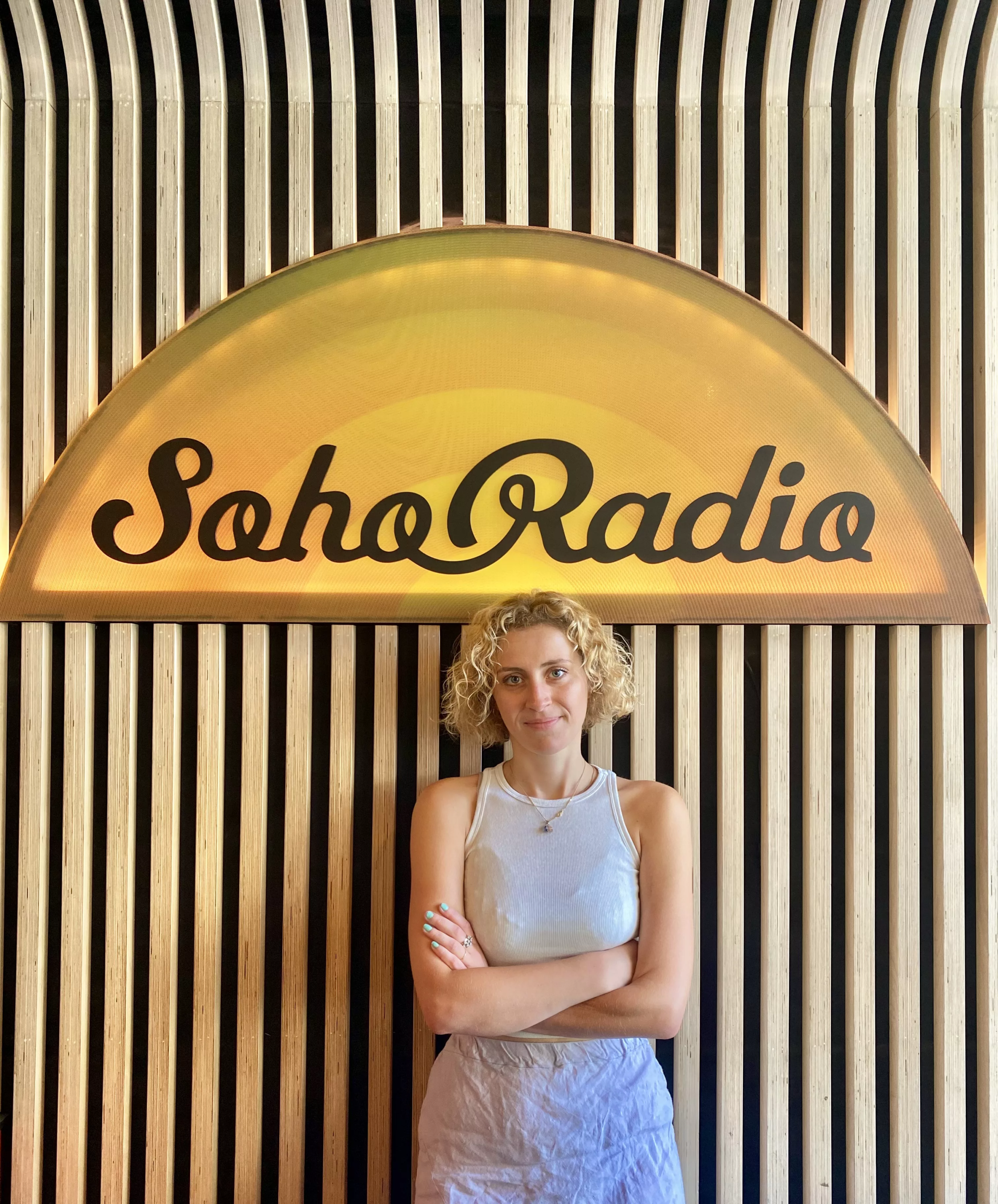
Bailey who owns the term ‘nepo baby’ is open about her family connections – “I think it’s so important to speak openly about it. I feel like people who don’t are ashamed to say so. Which leads to the question of ‘how bad are you at your nepo baby job that you need to hide it.’ I am not afraid of making mistakes, I am not exempt from that, but being a nepo baby does put a weird particular stress on not letting down your family name”.
What makes art different from other careers where children enter the family business is that it’s highly subjective, it’s a subject that Nabeel touches on when he says: “I think that we should view this topic the way we view a banker following in their parent’s footsteps, where nepotism would probably be much more prevalent. We take those connections as societal norms. However I think since art is so subjective, we have to tread a little more carefully and aim to create a much more level playing field.”
When it comes to giving back Shemza states – “In the last twelve years of my career, I have made it my mission to make art accessible to everyone, through participatory art, workshops, talks and being Director of Art in Flux CIC, I have done my best to use this privilege to the advantage of not just myself but other artists and members of the public.”
Discussing privilege is not easy, and is often uncomfortable, with the discomfort often rising in proportion to the level of privilege. However, it is important to have conversations about the role of privilege and what has come through from everyone who has spoken to Elephant for this article is that it starts with openness and transparency. Dewe Mathews sums it up by stating – “Access and privilege is a difficult thing to manage and navigate, but I think one of the ways to tackle it is to be open about it.”
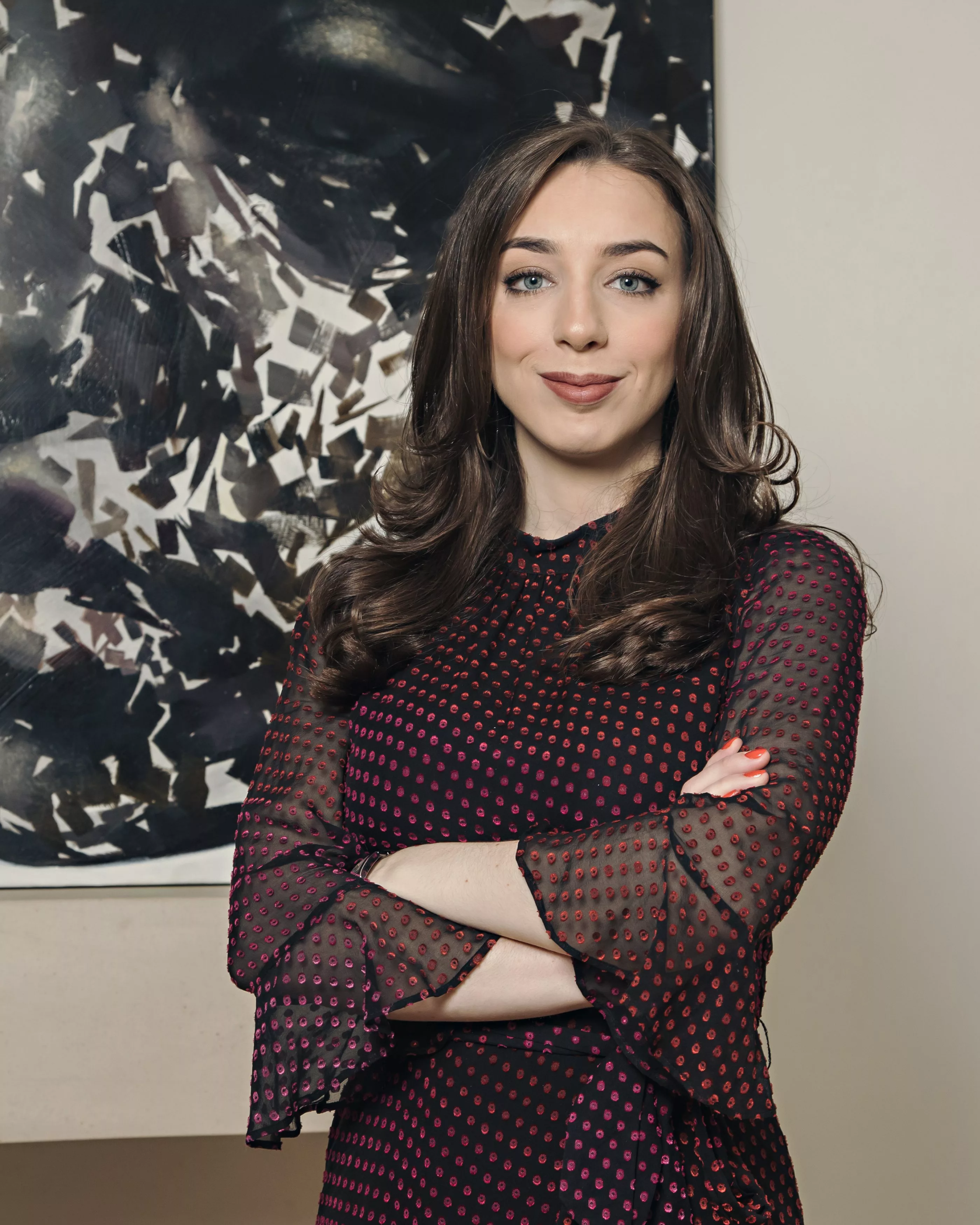
When referring to family connections, Millie Jason Foster, director of Gillian Jason Gallery – a gallery named after her grandmother who founded it – has this to say. “Family legacy is important to celebrate, as long as you are humble about your origins, work hard, and bring others with you along the journey … People can’t change their heritage but they can forge an inclusive path.”
Elephant did reach out to numerous individuals to comment on this article and many of those who are likely to have had the most privileged access via their family connections were those who declined to comment, even when anonymity was offered. It suggests that some people still feel uncomfortable discussing this topic publicly or don’t want it known that they have the connections that may have helped them to get ahead.
It’s something that Bailey wrestles with – “I’m not gonna lie, I don’t think there is a constructive way to have a discussion on this. Or maybe more accurately I cannot think of a constructive way to have these conversations. I am a proud nepo baby but I feel like many people, particularly in the arts are somewhat ashamed to admit they have had a leg up. Especially in an industry which is known to gate keep”.
This article has focused on family connections within the creative sector but it’s important to recognise that privilege comes in many forms including having friends and connections through social clubs and alumni networks, and not forgetting the powerful privileges that come with being of a certain gender or race, or being born in a country that affords more opportunities to those who want to pursue a creative career.
Privilege itself is a spectrum that is not a binary split between nepo babies and those who aren’t, every individual has a different level of privilege and anyone who has been successful in their career choice will have some degree of privilege. It is important that we have open and transparent debates around the advantages that some people have, and to help those who lack the advantages to progress. A person often can’t help that they come from a privileged background, it’s how they use that privilege to support others that should define them.
Written by Tabish Khan
